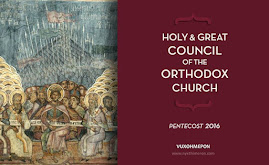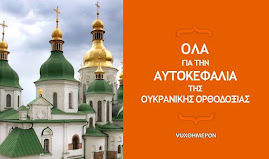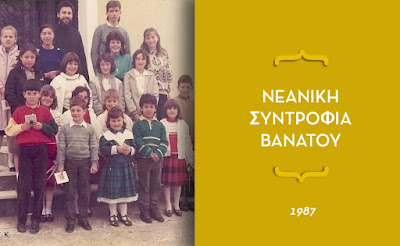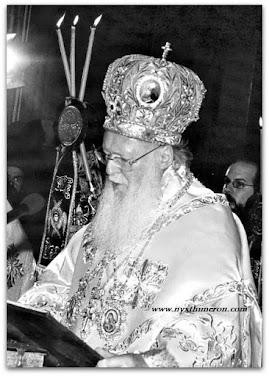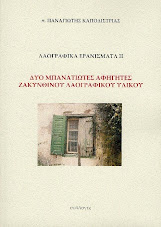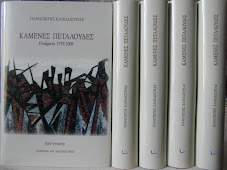Photos: Wiesia Klemens
Words of Welcome by Brother Alois
Brother Alois’ Greeting To His Holiness the Ecumenical Patriarch Bartholomew
Your Holiness, Beloved Patriarch Bartholomew, by coming to our hill of Taizé you cause in us an extraordinary joy, since we are so attached to the Orthodox Church.
Since its origins, our community has been imbued with the Orthodox tradition. The centrality given to the resurrection of Christ and the role of the Holy Spirit, the strong reference to the teaching of the Church Fathers, the liturgical life, the contemplative life maintained by monasticism, the icons, the courage to go through decades of suffering across past centuries, all these values lived in the East have been and remain for us, the brothers of Taizé, unique sources of inspiration.
For years now, young Orthodox from various countries have come to participate in the weeks of meetings that succeed one another around our community. Their mere presence raises the question in the young Christians of the West whom they meet here: how can we receive and share to a greater extent the gifts deposited by God in the soul of Orthodox Christians?
Most Holy Father, I am sure that your venerable predecessor, the Patriarch of Constantinople Athenagoras, and the founder of our community, Brother Roger, are looking down at us and rejoicing with one heart. During their life on earth, a deep mutual trust enabled them to promote in 1962 the creation of an Orthodox monastic center in Taizé which was animated by the beloved Archimandrite Damaskinos, future Metropolitan of Switzerland, until he moved to Chambésy and set up the center whose fiftieth anniversary you have just celebrated.
Venerable Patriarch, I can not forget the warm welcome that you gave me and some of my brothers at Christmas 2005. Your affection supported our community, which was then undergoing a trial on account of the very recent violent death of its founder. Your welcome was just as warm when, a few years later, with a hundred young people from twenty-five countries, we went on pilgrimage to you.
Today we are the ones who welcome you with love and express our admiration. During your long ministry as patriarch, you have tirelessly worked for more than 25 years to make the treasures of the Orthodox faith relevant to the contemporary world. You have raised your voice in favor of an earth where all can live; you constantly recall that our relationships to creatures should reflect our relationship to the Creator. Your aspiration for Christian unity, your openness to interreligious dialogue and your experience of a crucified Church make you an irreplaceable witness to the peace of Christ.
And now we will sing and praise God, then we will listen to you, and you will bless two icons. Following this we will go to the small Orthodox chapel adjoining this Church of Reconciliation and then to the tomb of Brother Roger. We are touched and honored that, after that, you will share the fraternal meal of our community.
Thank you, beloved Patriarch, for being like a Father in faith for us.
Christ is risen!
Speech of His All-Holiness, Ecumenical Patriarch Bartholomew
Eminences,
Excellencies,
Dear Brother Alois,
Dear Brothers of the Community,
Ladies and gentlemen,
Dear friends,
Christ is risen!
For many years now we have felt the desire to come to Taizé, the seat of a spiritual ecumenism, a melting-pot of reconciliation, a meeting-place that, following the extraordinary vision of Brother Roger, its founder, inspires Christians to come together.
If this is the first time that an Ecumenical Patriarch of Constantinople visits your community—we are particularly pleased that this opportunity has been offered to us—Taizé’s ties with the Ecumenical Patriarchate go back a long way. Indeed, as early as 1962, Brother Roger had first visited the late Ecumenical Patriarch Athenagoras at Constantinople. Brother Roger quickly became a heart-brother of Orthodoxy, as the ecumenical mission he wished to bear largely embraced all the families of Christianity, each according to its own identity. We believe that to this day you have preserved the icon that the Ecumenical Patriarch Athenagoras entrusted to him. This icon of the Mother of God represents not only the spirit of fraternity that we are trying to make grow in the shadow of the protection of our common Mother, the Virgin Mary, but, more generally, the perspective in which our prayer in favor of the unity of Christians is situated. As if to mark the unbreakable link between Taizé and Orthodoxy, on April 15, 1963, the first stone of an Orthodox chapel was laid at Taizé, confirming with this gesture the immutable presence of Eastern Christianity within these walls.
You, dear Brother Alois, have faithfully summed up this beautiful tradition that unites us. We remember with emotion receiving you at Phanar twelve years ago on the feast of the Nativity of our Lord. On that occasion we were able to show you our strong attachment to the meetings of young people which you regularly organize at the turn of each year, as if to testify that the passage of time inexorably brings together divided Christians by allowing them to progress together on the way of unity . Every year, you do us the honor of conveying our message to the participants of the European meetings. We are particularly happy to be able to address these young European Christians who, for a few days, experience, even imperfectly, the communion to which we aspire. Did not Brother Roger like to say: “Christ did not come to earth to start a new religion, but to offer every human being a communion in God.”? Let us also mention the pilgrimages of trust on earth which form an important part of your ecumenical work.
Dear Brother Alois,
Today you are receiving us in this beautiful Church of Reconciliation. The theme of reconciliation is central to Christianity and in our opinion we must distinguish three levels of reading. The first level is the relationship of the reconciliation of the human with the divine. The work of Christ in the world is a work of reconciliation that goes beyond religion in that it links vertically and horizontally the Creator and creatures. Reconciliation in Christ places the latter at the center of what humankind accomplishes as an image of God and in a dynamic relationship of resemblance. Christ is reconciliation. Remember the words of the Holy Apostle Paul: “For it was God who in Christ reconciled the world to himself, not imputing people’s sins to them, and putting the word of reconciliation in us.” (2 Corinthians 5:19) It is interesting to note that Saint Paul, in the preceding verse, speaks of a “ministry of reconciliation.” (2 Cor 5:18) Reconciliation is the yardstick by which we must measure our communion with God and our unity in the Church.
The second level stems directly from the “ministry of communion” that we have just mentioned. In fact, it is more ecumenical. It responds to the commitment to Christian unity in which the reconciliatory action we have to undertake takes its place. If we were to use only one image, we would use that of healing. To reconcile is above all to heal the evils of history, the scars of time, mutual misunderstandings, conflicts of memory, fratricidal hatreds. In this sense, the division between Christians to which we intend to respond by praying for the unity of the Churches is a spiritual wound, with shared responsibilities—whether accepted or not. Indeed, in the ecumenical era and at the time of the search for unity, there can be no reconciliation without forgiveness. Besides, for St. John Chrysostom, reconciliation cannot be put off. If we want to be true actors of reconciliation, we must assume our responsibilities and be ready to take the first step.
The third level, on the other hand, is more global. The love of Christ, the very man who urges us towards this reconciliation, encompasses all humanity. Reconciliation becomes an agent of peace, a lever to overcome historical antagonisms, a means of neutralizing the polarizations of the global social landscape and defusing conflicts. Reconciliation is therefore a global issue for our Churches and for the world at large. Let us quote this beautiful Lutheran-Catholic text, “From Conflict to Communion”, which, at this time of commemoration of the 500th anniversary of the Reformation, perfectly accounts for the spiritual and ecumenical path that the principle of “reconciliation” involves . “The ecumenical commitment to the unity of the Church does not only benefit the Church, but also the world, so that the world may believe. The more our societies become pluralistic in terms of religions, the greater the missionary task of ecumenism. Here again it is necessary to rethink things and to repent.” (Para. 243)
The challenge of reconciliation goes beyond the historical event that the Orthodox Church experienced during the Holy and Great Council meeting in Crete in June 2016. It was indeed not only a matter of studying the themes on the agenda, however important they may have been, but of dealing with the reality and the place of Orthodoxy as a whole in the contemporary world. In an age of globalization, the Orthodox Church must be able to equip itself with the tools to meet the challenges posed by modernity. The Holy and Great Council was a pivotal event, for it was at the same time an ecclesial phenomenon of communion, which manifests the unity of all Orthodoxy—this unity was not questioned by the autocephalic Orthodox Churches which did not participate because of the theological principle of catholicity—and the absolute necessity of a conciliar experience on a planetary level. Conciliarity, although traditional in Orthodoxy at local and regional levels, remains to be (re)discovered today on a global scale. We therefore thank God for the Holy and Great Council and hope that it is simply the starting-point of the renewed exercise of conciliarity as a synonym for the life of the Church. As we can read in the Message of the Holy and Great Council: “The Orthodox Church expresses its unity and its catholicity in the Council. Its conciliarity shapes its organization, the way in which it makes decisions and determines its destiny.”
Dear friends,
In order to understand what Taizé represents for the Orthodox Church, let us turn to Olivier Clement for a moment. In his beautiful work Taizé: a Meaning to Life, the Orthodox theologian did not regard Taizé as a community in the institutional sense; it is also, and perhaps first of all, an event. The “Taizé event” crystallizes, according to him, the aspirations of youth in search of being, in search of belief, in search of life. The “Taizé event” acts as a powerful parable of conversion and reconciliation, focusing on the inner life that allows us to enter into the mystery of unity while fully subscribing to the life of the world. Olivier Clement wrote in particular: “Prayer does not free us from the tasks of this world: it makes us even more responsible. Nothing is more responsible than to pray.”
These words resound with power in the Orthodox tradition and lead us to deepen the meaning of reconciliation through the mystery of the resurrection. The liturgical time in which we find ourselves invites us to this all the more strongly, since here we touch the roots of the mystery of the Christian faith. Saint Irenaeus of Lyons wrote: “But in fact, through the communion we have with him, the Lord has reconciled man with the Father, reconciling us to himself by his body of flesh and redeeming us by his blood....” (Adv. Haer, V, 14, 3)
By his death and resurrection, Christ reconciled us to God. As we sing the Easter hymns, Eastern and Western Christians together, let us continue to pray that the light of the resurrection will lead us on the path of unity and communion.
Thank you for having us here today.
Christ is risen!
Με μεγάλη επιτυχία και πλήθος κόσμου πραγματοποιήθηκε σήμερα η επίσημη επίσκεψη του Παναγιωτάτου Οικουμενικού Πατριάρχου κ. Βαρθολομαίου στη χριστιανική Κοινότητα του Ταϊζέ, στην κεντρική Γαλλία. Τον Παναγιώτατο συνόδευσε ο Σεβ. Μητροπολίτης Γαλλίας κ. Εμμανουήλ και ο Σεβ. Μητροπολίτης Σηλυβρίας κ. Μάξιμος.
Είναι η πρώτη επίσκεψη Οικουμενικού Πατριάρχου στην Κοινότητα του Ταιζέ και πραγματοποιήθηκε μετά από πρόσκληση του Ηγουμένου αυτής αδελφού Alois. Τον Παναγιώτατο προσφώνησε ο Ηγούμενος και εν συνεχεία ο Οικουμενικός Πατριάρχης μίλησε για τη συμφιλίωση και την ανάγκη προώθησης της χριστιανικής ενότητας.
Στο τέλος της ομιλίας Του, ο Παναγιώτατος πρόσφερε μία εικόνα του Αγίου Αποστόλου Ανδρέα και ακολούθως μετέβη στο Ορθόδοξο Παρεκκλήσιο της Κοινότητας όπου τον υποδέχτηκαν Ορθόδοξοι νέοι. Εν συνεχεία επισκέφτηκε το κοιμητήριο της Κοινότητας, όπου αναπαύεται και ο ιδρυτής της αδελφός Roger.
Η Κοινότητα του Ταϊζέ ιδρύθηκε μετά τον Β΄ Παγκόσμιο Πόλεμο και σήμερα απαριθμεί περισσότερους από εκατό αδελφούς Ρωμαιοκαθολικής και Προτεσταντικής παραδόσεως. Δίδει έμφαση στην ποιμαντική της νεολαίας και στη μελέτη της Βίβλου. Δέχεται συνολικά περισσότερους από 100.000 προσκυνητές νέους από όλο τον κόσμο κάθε χρόνο.



















































